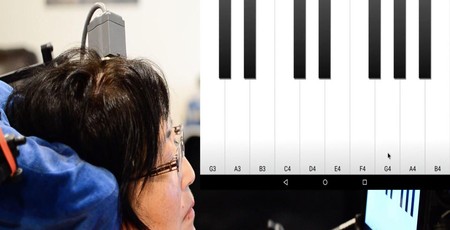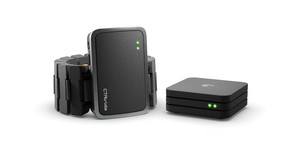
Researchers led by the BrainGate consortium have published a study of an experimental brain-computer interface (BCI) which, they claim, has allowed tetraplegic participants to interact with an off-the-shelf Android tablet via Bluetooth.
Tetraplegia, or quadriplegia, is the name given to the loss of use of all four of the subject's limbs and torso. For individuals with tetraplegia, interaction with the outside world can be a challenge - particularly when so much of modern life centres around computers, smartphones, and tablets. If head movement is still available, the typical solution is a modified keyboard system and a pointer attached to the chin, head, or held in the mouth, an approach which can be modified to work with touch-screen systems; for those without, voice-recognition systems can allow access to most features.
The BrainGate consortium, though, has a different approach, publishing the results of a study into a brain-computer interface (BCI) which they claim feels as natural to use as a mouse and which requires no special software or adaption on the computer end.
The system works via an implant which reads signals associated with movement generated in the brain's motor cortex. These signals are then transferred to a Bluetooth module designed to show up to the system as a standard mouse device, which is in turn linked to an otherwise unmodified Google Nexus 9 Android tablet with all accessibility functionality disabled. Once set up, the participants were asked to perform tasks ranging from browsing music streaming options and YouTube videos to composing emails and chat messages.
The result: The ability to perform up to 22 point-and-click operations per minute, the researchers found, and to type up to 30 effective characters per minute on the standard on-screen keyboard. 'It felt more natural than the times I remember using a mouse,' one participant is recorded as claiming, while another stated that they had 'more control over this than what I normally use'.
'It was great to see our participants make their way through the tasks we asked them to perform, but the most gratifying and fun part of the study was when they just did what they wanted to do - using the apps that they liked for shopping, watching videos or just chatting with friends,' explains the paper's lead author Dr. Paul Nuyujukian. 'One of the participants told us at the beginning of the trial that one of the things she really wanted to do was play music again. So to see her play on a digital keyboard was fantastic.'
The paper, Cortical Control of a Tablet Computer by People with Paralysis, is available now in the open-access PLOS One journal.

MSI MPG Velox 100R Chassis Review
October 14 2021 | 15:04








Want to comment? Please log in.